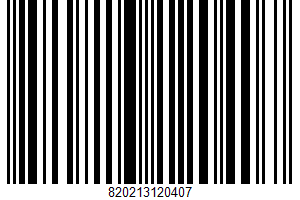Pulaski, Sugar Coated Peanuts - 255 calories
Manufacturer Square Enterprises Corp.
Product Information and Ingredients
Pulaski, Sugar Coated Peanuts is manufactured by Square Enterprises Corp. with a suggested serving size of 50 GRM (50 g) and 255 calories per serving. The nutritional value of a suggested serving of pulaski, sugar coated peanuts includes 0 mg of cholesterol, 0 mg of sodium, 27 grams of carbohydrates, 2 grams of dietary fiber, 23 grams of sugar and 7 grams of proteins.
The product's manufacturer code is UPC: 820213120407.
This product is high in sugars.
Calories from fat: a total of 49.41% of the calories in the suggested servig of this product come from fat.
Sugars 46% of DV
A serving of 50 GRM (50 g) of pulaski, sugar coated peanuts has 46% of the recommended daily intake of sugars.
Ingredient List
- Roasted Peanuts
- Sugar
- Glucose Syrup
- Flavor
- Colors (ammonia Caramel
- Carotenes
- Betanin
- Copper Complexes Of Chlorophylls And Chlorophyllins)
- Glazing Agents (gum Arabic
- Beeswax)
- Palm Oil

Nutrition Facts
Serving Size 50 GRM (50 g)
| Amount Per Serving | ||
|---|---|---|
| Calories 255 | Calories from Fat 126 | |
| % Daily Value* | ||
| Total Fat 14g | 11% | |
| Saturated Fat 2g | 5% | |
| Trans Fat 0g | ||
| Cholesterol 0mg | 0% | |
| Sodium 0mg | 0% | |
| Total Carbohydrate 27g | 5% | |
| Dietary Fiber 2g | 4% | |
| Sugars 23g | ||
| Protein 7g | ||
| Vitamin A 0% | Vitamin C 0% |
| Calcium 1% | Iron 3% |
* Percent Daily Values are based on a 2,000 calorie diet.
Nutrition Facts
Serving Size 100g (about 3.52 oz)
| Amount Per Serving | ||
|---|---|---|
| Calories 510 | Calories from Fat 252 | |
| % Daily Value* | ||
| Total Fat 28g | 22% | |
| Saturated Fat 4g | 10% | |
| Trans Fat 0g | ||
| Cholesterol 0mg | 0% | |
| Sodium 10mg | 0% | |
| Total Carbohydrate 54g | 9% | |
| Dietary Fiber 4g | 8% | |
| Sugars 46g | ||
| Protein 14g | ||
| Vitamin A 0% | Vitamin C 0% |
| Calcium 2% | Iron 5% |
* Percent Daily Values are based on a 2,000 calorie diet.
Pulaski, Sugar Coated Peanuts Nutritional Value
| Nutrient | Suggested Serving 50 GRM (50 g) | Standard Serving 100g |
|---|---|---|
| Energy | 255 kcal (6%) | 510 kcal (13%) |
| Protein | 7 g (7%) | 14 g (14%) |
| Total Lipid (fat) | 14 g (11%) | 28 g (22%) |
| Carbohydrate, By Difference | 27 g (5%) | 54 g (9%) |
| Fiber, Total Dietary | 2 g (4%) | 4 g (8%) |
| Sugars, Total | 23 g (46%) | 46 g (92%) |
| Calcium, Ca | 20 mg (1%) | 40 mg (2%) |
| Iron, Fe | 0.9 mg (3%) | 1.8 mg (5%) |
| Sodium, Na | 5 mg (0%) | 10 mg (0%) |
| Vitamin C, Total Ascorbic Acid | 0 mg (0%) | 0 mg (0%) |
| Vitamin A, Iu | 0 IU (0%) | 0 IU (0%) |
| Fatty Acids, Total Saturated | 2 g (5%) | 4 g (10%) |
| Fatty Acids, Total Trans | 0 g (0%) | 0 g (0%) |
| Cholesterol | 0 mg (0%) | 0 mg (0%) |
Calories Burn off Time
How long would it take to burn off Square Enterprises Corp. Pulaski, Sugar Coated Peanuts with 255 calories? A brisk walk for 55 minutes, jogging for 26 minutes, or hiking for 43 minutes will help your burn off the calories in pulaski, sugar coated peanuts.
Burn off time varies based on your weight, physical activity and exercise intensity. The following physical activity table contains an estimated burn off time for a person weighting 154 lbs.
| Physical Activity | Burn Off Time |
|---|---|
| Bicycling - 10 mph or less | 53 minutes |
| Dancing | 46 minutes |
| Golfing | 46 minutes |
| Hiking | 43 minutes |
| Light Gardening | 46 minutes |
| Stretching | 85 minutes |
| Walking - 3.5 mph | 55 minutes |
| Weight Training - light workout | 71 minutes |
| Aerobics | 32 minutes |
| Basketball | 35 minutes |
| Bicycling - 10 mph or more | 26 minutes |
| Running - 5 mph | 26 minutes |
| Swimming | 30 minutes |
| Walking - 4.5 mph | 34 minutes |
| Weight Training - vigorous workout | 35 minutes |
Footnotes
Percent daily values are based on a 2,000 calorie reference diet. Factors like age, gender and level of physical activity may affect your daily required values.
The editorial opinions regarding food value or quality in this website are given without warranty, and are not intended to replace medical advice or a nutritionist guidance.
Dietary Recommendations
A healthy eating pattern that accounts for all foods and beverages within an appropriate calorie level could help achieve and maintain a healthy weight and reduce the risk of chronic disease. Healthy eating habits include the following:
- Vegetables from all subgroups, including dark, green, red and orange vegetables and also beans and peas
- A variety of whole fruits
- Grains with at least half of which are whole grains
- Low or fat free dairy products, including milk, yogurt, cheese and/or fortified soy beverages
- Protein foods, including seafood, lean meats and poultry, eggs and nuts
- Oils with limited amounts of saturated fats and trans fats, added sugars, and sodium
